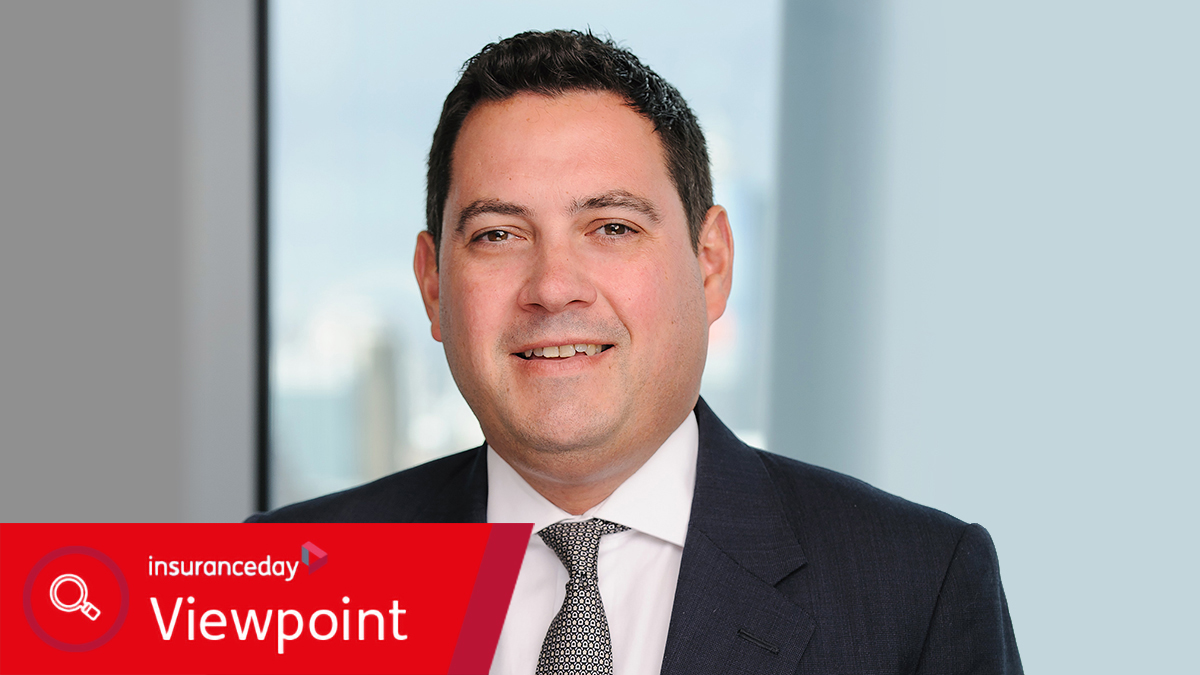Bridging the generational gap in claims
In today’s workplace, the generational gap among claims professionals presents a unique challenge
Workers from the Baby Boomer generation to Gen Z are working together in companies, but they enter the market with different knowledge bases, meaning the expectations of progression are different, as are their learning styles
Four distinct generations – Baby Boomers, Generation X, Millennials and Generation Z – enter and progress in the field of insurance claims with vastly different experiences and knowledge and it is crucial to find ways to bridge the gaps to cultivate a productive and collaborative workplace for all.
A recent survey by the London School of Economics (LSE) found lower productivity among the younger generations in today’s workplaces unless they are “intergenerationally inclusive”, in which case employees are twice as likely to be satisfied with their jobs and less likely to search for a new role.
The survey constituted 1,450 employees in the finance, technology and professional services industries, which included claims professionals. Akin to those professions surveyed, the generational gap among claims professionals presents a unique challenge.
The knowledge base at the commencement of careers is different: Millennials and Generation Z have access to online information from all over the world on the insurance industry and claims handling, whereas Baby Boomers and Generation X tended to gain their understanding from being in situ and from their peers. As the generations are entering the market with different knowledge bases, the expectation of progression is different, as is the learning style. However, these generations are all in the workplace at the same time.
Intergenerationally inclusive
Based on these findings, it is crucial for the claims industry to be “intergenerationally inclusive” to attract new entrants to the profession, maintain professional standards and ensure knowledge is transferred between each of those generations in the most effective way possible.
This is especially the case when, as the US Chamber of Commerce highlighted in a June 2021 article entitled The American Works Report: Industry Perspectives, according to the US Bureau of Labor Statistics the number of US insurance professionals aged 55 and older has increased 74% in the past 10 years, leading to an estimate that within the next 15 years, 50% of today’s insurance workforce will retire. This issue is not just confined to the US and is reflected across other markets.
To retain and attract new talent, we first need to understand the differences between each generation. Boomers often began their careers as a result of personal connections to the industry and with relatively limited knowledge of insurance claims handling. Learning on the job by shadowing career claims handlers, attending in-person meetings, trials and reading case law in volumes and long handwritten documents was one of the main methods to becoming a fully-fledged claims handler for their generation.
Generation X, on the other hand, are more likely to be the generation where the saying “nobody decides to work in the insurance industry, rather they end up in insurance” applies, often having transitioned into claims through more formal education routes such as business, finance and law and assimilated the known knowledge with the skills required for an effective claims handler from the Boomers, while Gen X embedded computers as tools of the trade.
In contrast, Millennials and Gen Z have grown up as technology natives, with access to detailed understandings of the intricacies of the insurance market if they chose to search online and the ability to use technology to support their development while having access to various entry points into insurance, including graduate and apprentice schemes, which have become more prolific and accessible in recent years.
Bridging the generational gap
With these various generational experiences, a big challenge for employers is bridging these differences to be inclusive. Face-to-face mentoring from senior claims handlers and gaining experience through in-person meetings and court hearings is not always accessible in the hybrid world and does not necessarily mirror how each generation learns.
Conversely, Boomers and Gen Xs find comfort in building relationships in-person and picking up the nuances of face-to-face interactions, such as virtual meetings. Although the Covid-19 pandemic has accelerated the shift to and acceptance of hybrid working for all generations, the impact of this has differed and not always been positive. However, it seems to be non-negotiable for the younger generations according to a recent Deloitte study, highlighting that Gen Z employees were more likely to leave their jobs if they could not work from home at least one day per week.
Comparatively, the aforementioned LSE report highlights the hybrid approach and the lack of collaboration between older and younger generations seems to be resulting in an environment that leads to friction and discord.
How do we balance the different approaches and still transfer the “lived” experience of Boomers and Gen X to Millennials and Gen Z in a way that aligns with their preferred learning and development styles? Some practical solutions could include recording seminars in-person and online or one-on-one mentorship being captured by artificial intelligence (AI) and on a library database for exchanging knowledge.
While some of the more traditional claims handling skills may become redundant as a result of advancements in AI, there are some essential skills that remain and can only be picked up by experience. These include listening to and learning from others, improving communication skills with clients and stakeholders, understanding nuanced approaches, collaborating with other insurers, underwriters and risk management personnel to resolve claims and building a team environment that assists customers. This raises another question: how can we capture these from the Boomers and Gen X, who will be retiring from the profession in the coming years?
Pivotal role of mentoring
Markel is continuing to address the talent gap and achieve the most effective intergenerational inclusive work practices through structured and reverse mentoring. Our Mentoring the Market programme – in collaboration with one of our panel lawyers, DAC Beachcroft – provides a claims and technology mentoring network for all generations within our claims teams. The initiative comprises remote training sessions and an online library of excellence, where mentors can be chosen based on the knowledge sought.
From our experience and understanding, mentoring programmes lead to engagement and faster career progression and, to achieve inclusive work practices, we need diversity of thought, perspectives, expertise and experience at every level.
In adopting this approach, we try to encourage each generation to bring their strength to the workplace, fostering a more collegiate and innovative environment. We also seek to engage each generation by general diversity, encouraging early career candidates from under-represented backgrounds to our claims teams through organisations such as the Brokerage and hosting students as part of the London Market Group X Vision Path Futures Academy, which engages with a diverse range of students at 50 schools across London to raise awareness of careers in insurance and connect them with industry professionals.
Knowledge transfer
Undoubtedly, the industry needs to bridge this generational gap and innovative solutions are required, as well as buy-in from the generations to these solutions. The LSE article alludes to an answer when it says “generations agree on the skills that are most important to productivity and career advancement. The top three skills being active listening, time-management and judgment in decision-making”. If this is the meeting point of the generations, what can we do to achieve work practices that are inclusive of all the generations? Active listening can be in-person and online depending on the preference; online seminars are now commonplace and database libraries can be and are set up.
Internal or external “Insurance Wiki” forums could also encourage proactive knowledge sharing across the insurance profession and an understanding as to how to time manage effectively for group and solo tasks. However, judgment in decision-making is a learned experience but that does not necessarily mean it has to be one-on-one every time. Where there is one-on-one mentorship, can this be captured by AI for reference by others?
Proactively seeking an intergenerational workplace for claims professionals will minimise the loss of valuable knowledge in the profession and retain those who want to seize opportunities for further innovation. In fostering collaboration, leveraging technology and implementing structured mentoring programmes, the industry can ensure productivity and engagement and the strengths of each generation are recognised and used to full effect.
Lisa Mitchell is head of claims, Australia, Gemma Naughton is assistant claims manager, special projects, and Ellie Wharton is a claims adjuster, equine, at Markel


